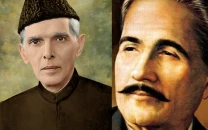Polio eradication: In losing battle against polio, Pakistan comes up with a new plan
Despite getting sufficient help from donors, the govt failed to make the country polio-free.

After the massive failure of the National Emergency Action Plan (NEAP) for polio eradication, the government has come up with a new plan.
Admitting the failure of the NEAP, Prime Minister’s Special Assistant Shahnaz Wazir Ali, however, attributed it to lack of commitment, accountability and inadequate implementation of strategies and ownership of the polio programme at provincial, district and union council levels, due to which polio eradication activities have remained inconsistence in recent years.
The government has failed to halt the crippling disease, as Pakistan registered a record 197 fresh polio cases in 2011, representing over 60 per cent of cases reported worldwide, as compared to 144 cases reported in 2010.
In Balochistan, the number of cases shot up from 11 in 2010 to 72 in 2011, while Sindh had 32 cases in 2011, up from 27 in 2010.
“Considering the loopholes which resulted in NEAP’s failure in 2011, the government has chalked out a new plan for 2012 and included all the aspects in it which were lacking earlier,” she said. She was briefing media on the latest situation of polio and the new plan for its eradication at a news conference at a local hotel on Monday.
Japanese Ambassador Hiroshi Oe, World Health Organisation country representative Dr Guido Sabatinelli, Unicef Polio Eradication Unit chief Dennis King, and Bill and Melinda Gates Foundation country representative Dr Waqar Ajmal were also present.
The adviser said although the government had received sufficient financial and technical assistance from foreign and domestic donors, inadequate implementation of strategies, especially in high-risk areas, union council and district levels were the main reasons behind Pakistan’s inability to become polio free.
The speakers said the strain of the polio virus which is specific to Pakistan has travelled to other countries and caused outbreaks in China and Afghanistan in 2011. This causes concern for the public image of Pakistan overseas.
There is a dire need to include women in each polio team, as without them, the teams cannot offer doorstep polio vaccination to every child. Unfortunately, women are reluctant to become a part of the team as they do not get permission from their families.
Parliamentarians should also be very active in their areas in creating awareness about the polio vaccine. Religious leaders should also be briefed about the importance of vaccination and should be made an active part of the awareness campaigns.
She said that many orthodox families in Khyber-Pakhtunkhwa are reluctant to vaccinate their children as they believe that the vaccine is of no use. Of the children suffering from polio in Pakistan, 77 per cent are Pakhtun.
She announced a three-day national polio campaign that will start from January 30.
Published in The Express Tribune, January 24th, 2012.



















COMMENTS
Comments are moderated and generally will be posted if they are on-topic and not abusive.
For more information, please see our Comments FAQ